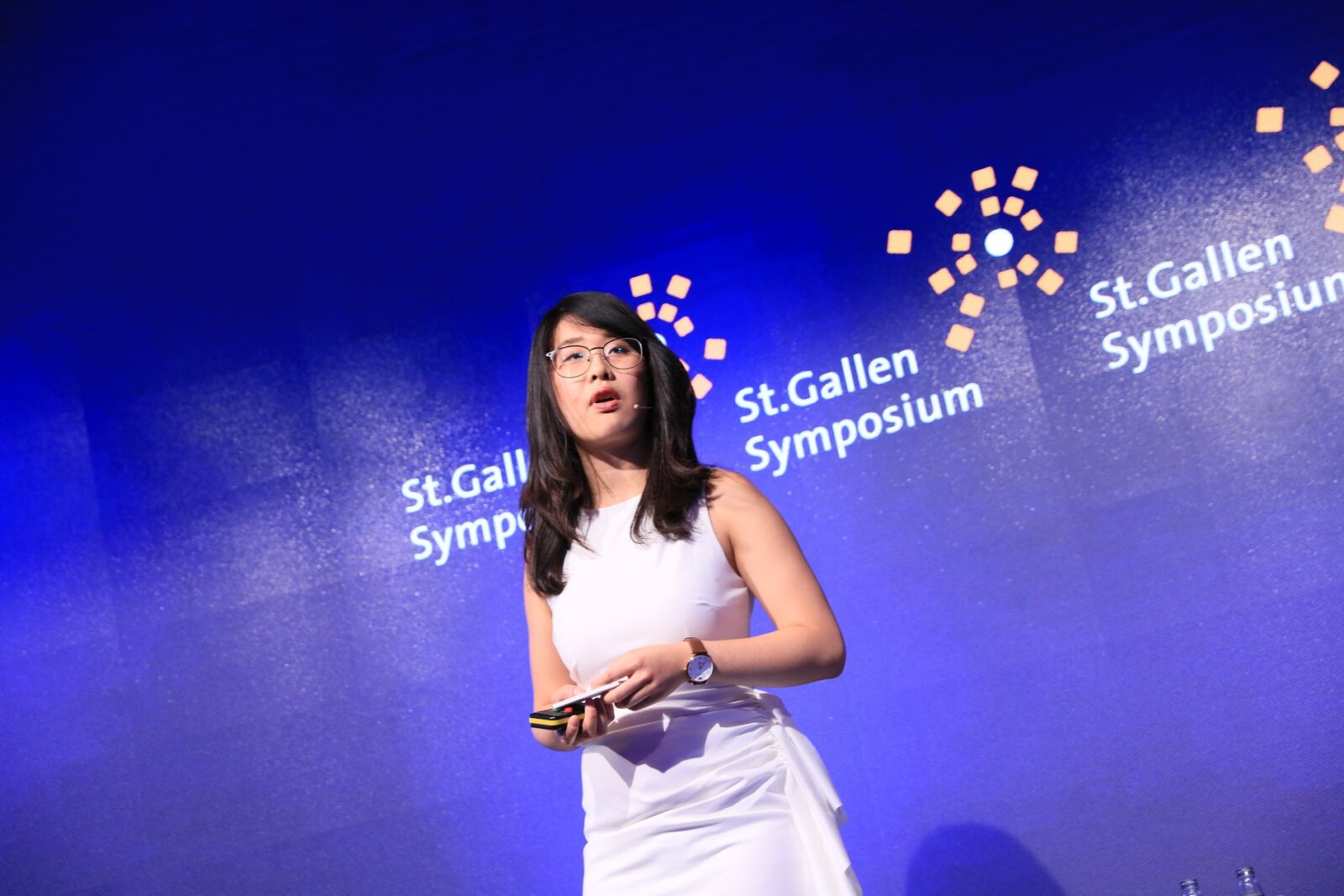News Details
Reimagining the Purpose of Capital: MSSP Grad Named a Winner of 49th St. Gallen Symposium Essay Competition

Authored by: Alina Ladyzhensky
Photography by: 49th St. Gallen Symposium Staff
Alumni
05/30/19
Natalie Lau, a Master of Science in Social Policy (MSSP) student at Penn’s School of Social Policy & Practice (SP2), has been named as a winner of the St. Gallen Wings of Excellence Award. The prestigious award is part of an annual essay competition administered by the St. Gallen Symposium— a global, intergenerational gathering which fosters debates on economic, political, and social developments among current and aspiring leaders.
This year, the essay contest asked applicants to consider the prompt, “What approach would you suggest to change the current purpose of capital?”, challenging students to suggest projects or actions with long-term, positive impact that would inspire leaders worldwide.
Lau’s submission, “Reimagine the Purpose of Capital – An Open-source Impact Database for Impact Investment”, won second place from among a pool of over 1,000 graduate student entries from around the world, and was selected by an independent jury of professors, corporate executives, and entrepreneurs. Lau, along with the other two finalists, was invited to present and discuss her concepts on stage at the 49th St. Gallen Symposium, held at the University of St. Gallen in Switzerland.
“As the only Asian woman who made it as a finalist in the past few years, I feel really honored to present an idea that I hold dear to in front of 700 guests, including business executives, policy makers and top-notch scholars from the U.S., Europe, Africa, and Asia,” Lau said. “It feels even more rewarding to have professors and C-suite executives congratulating and supporting me to take the ideas forward and execute the vision. After the symposium, I feel even more motivated to continue my work and passion.”
In her essay, Lau focused on impact measurement, and how evidence and non-financial outcomes could be utilized to improve the use of capital. Increasingly, investors are interested in socially and environmentally sustainable businesses or projects – an area of research that Lau focused on even before she came to Penn.
Prior to her time at SP2, Lau worked in a Hong Kong-based think tank focused on sustainable development and using policy to promote greater social good. This experience led to her interest in how the public sector can mobilize private capital toward participating in sustainability efforts, thereby contributing much-needed resources toward social issues and civic causes.
“My angle is more on private sectors, and how we could use regulations or guidelines to help the private sector direct their causes into the social sector— how they could invest in social enterprises and local projects, or how development organizations like the UN or the World Bank could put their money into better projects,” Lau explained. “The biggest challenge that we currently face is the lack of government resources. We could leverage the private sector to contribute to social good, as well.”
As part of her advocacy for fostering private and public sector collaboration, Lau creates impact-measurement tools to develop business strategy for social ventures in Philadelphia and is involved with the Wharton Social Impact Initiative, through which students and alumni work to develop sustainable, business-driven solutions to social and environmental challenges.
“It seems that there is currently a great division between the nonprofit social sector and the private sector. What I’m trying to show is that people from SP2 can be more involved in the private sector space, and that they can establish partnerships with Wharton and see how we can work together,” Lau said. “I think that’s the missing piece—just because we’re in social policy doesn’t mean that we shouldn’t care about the private sector.”
As a proponent of impact investment, Lau emphasizes that the private sector can be an important conduit for social good. She aims to utilize her research background and skills to improve the private sector’s involvement in social change initiatives— and vise-versa.
“Since MSSP is a skill-based and research-heavy program, what we learn a lot is data analysis or policy analysis, and then use research and evidence to support our claim—to analyze whether something is efficient or cost-effective. I’m trying to tie in my research background and skills to work with the private sector,” Lau explained. “We shouldn’t demonize businesses— if they have the resources, we can leverage them. Instead of saying that it’s government against business, they can actually work together for the greater good.”
Lau, who just graduated this month, is wasting no time in taking on these challenges. This summer, she will join the Impact Measurement team of the Global Impact Investment Network, a nonprofit organization dedicated to growing the scale and effectiveness of impact investing worldwide. There, she will apply her research background to incorporating social and environmental impact into investment portfolios, in close partnership with entities such as the World Bank and United Nations Development Programme, as well as private investors.
Of this newest endeavor, Lau gave a succinct and impactful description—and one which also speaks to her dedicated efforts thus far. “The ultimate goal is to create greater social good.”